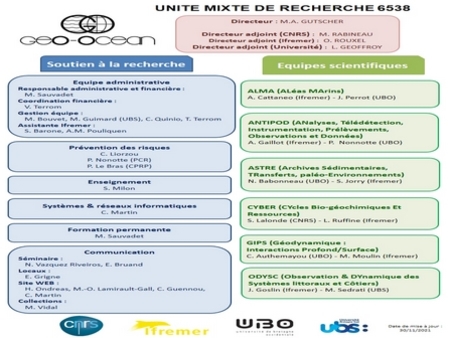Nodules polymétalliques
NODUMER bibliographic database
The NODUMER bibliographic database is no longer online because we have changed the operating system.
Book published in March 2008 by Vuibert editions
The polymetallic nodules
An extraordinary mining and scientific submarine adventure
By Michel Hoffert
Several thousand meters deep, some abyssal plains are covered extensively by a strange geological body: polymetallic nodules. Containing metals among the most sought - manganese, copper, nickel and cobalt - hundreds of billions of tons of ore in 1970 to become the subject of an intense scientific and economic competition internationally.
To participate in this new mining Eldorado, several nations - including France - then invested huge sums in exploration, scientific research and designed collection devices capable of operating at great depths, while diplomatic activity also took place to determine the ownership of these riches, almost all located in international waters.
Michel Hoffert tells the stories of an exciting journey, some of which are worthy of the finest films of espionage! We'll see how such the Russians, Americans, Germans, Japanes and French adopted very different strategies. After 1980, a fall in metal prices added to the difficulties of operations which resulted in the gradual withdrawal of the first investors. However, exploration has never ceased thanks to the manned submersible Nautile, the French researchers conducted in December 1988 the first direct observation of nodules in the Northwest Pacific.
Over thirty years later, the exploitation of nodules is relevant once. The International Convention on the Law of the Sea in 1982 makes the nodule a "common heritage of humanity" ; nations like China, India and South Korea are intensifying their research into the possible shortage of some metals and, under the auspices of the United Nations, an International Seabed Authority has been established to arbitrate the distribution of submarine wealth.
In this work of synthesis, Michel Hoffert also analyses scientific knowledge and offers an explanation for understanding the formation of nodules and their distribution.
Summary of web pages
Seabed exploration methods
Deep seabed photographsLe SAR (Sonar Acoustique Remorqué)
Different stages of exploration
Mathematical simulation of a deposit







